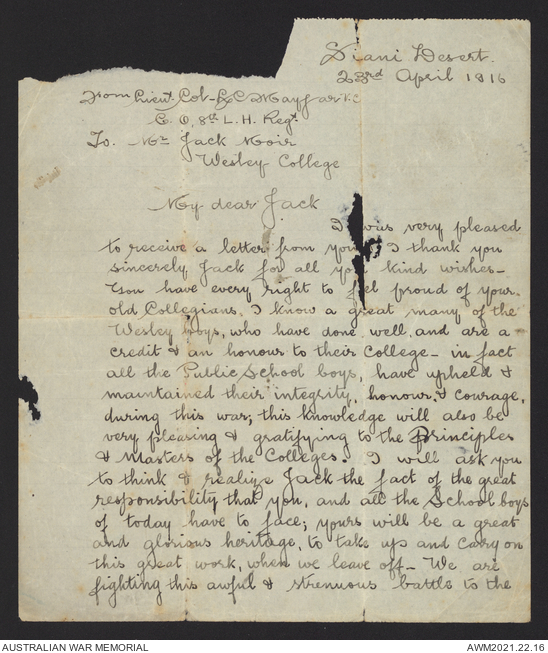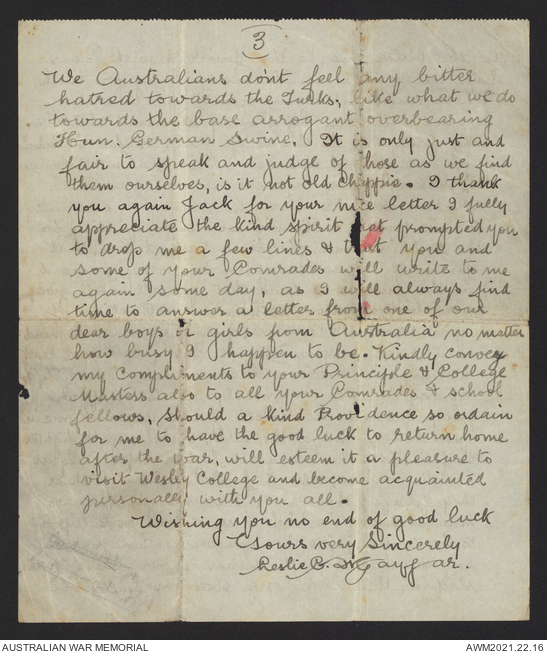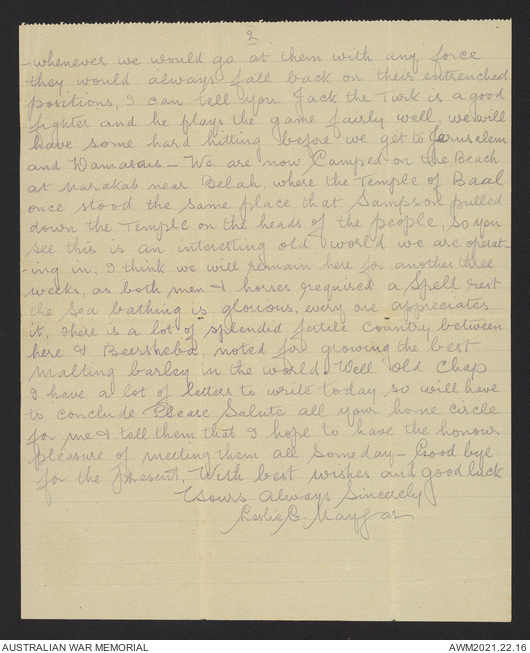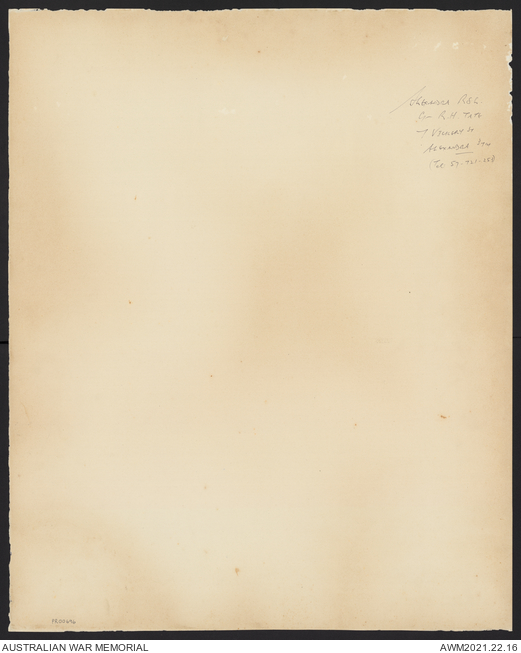| Places |
|
|---|---|
| Accession Number | AWM2021.22.16 |
| Collection number | PR00696 |
| Collection type | Digitised Collection |
| Record type | Wallet |
| Item count | 1 |
| Object type | Letter, Artwork |
| Physical description | 8 Image/s captured |
| Maker |
Maygar, Leslie Cecil |
| Date made | 1915-1917 |
| Conflict |
First World War, 1914-1918 |
| Source credit to | This item has been digitised with funding provided by Commonwealth Government. |
Wallet 1 of 1 - Letters from Lieutenant Colonel Leslie Cecil Maygar to school children, 1915-1917








Collection relating to the First World War service of Lieutenant Colonel Leslie Cecil Maygar VC, 8 Australian Light Horse Regiment, Turkey, Egypt and Palestine, 1915-1917.
Wallet 1 of 1 - Contains two letters from Maygar to 'Jack' [William Ernest] Moir, a student at Wesley College in Melbourne. In the first letter written whilst stationed in the Sinai Desert, Maygar comments on the qualities of Old Wesley Collegians serving during the war and expounds on the values he is fighting to protect and the responsibilities of the next generation. He also comments on the characteristics of Turkish and German soldiers. In the second letter written whilst in camp near Belah in Palestine, Maygar refers to his rural upbringing and the advantages of such a lifestyle with reference to Jack's situation. He subsequently describes the Second Battle of Gaza, how his horse 'Wick" was shot from under him, the loss of his other horse "Ned" in August 1916, encounters with Turkish cavalry and the calibre of Turkish soldiers. He closes the letter by remarking on recreational activities and the surrounding landscape.
The collection also contains an oversized transcribed letter from Maygar to the children of Fawcett State School written on 10 December 1915 whilst serving at Tolman's Post, Gallipoli, but transcribed and illustrated by an unknown artist, dated 13 April 1916. The body of the transcription is written in embellished text surrounded by a painted border featuring the British and Australian flags and native flora. In the letter Maygar encourages the school children to apply themselves in their studies and future endeavours and remarks on the responsibilities they will inherit.
Related information
Places
- Africa: Egypt, Frontier, Sinai
- Middle East: Ottoman Empire, Palestine, Beersheba
- Middle East: Ottoman Empire, Palestine, Belah
- Middle East: Ottoman Empire, Palestine, Gaza
- Middle East: Ottoman Empire, Turkey, Dardanelles, Gallipoli
- Oceania: Australia, Victoria, Alexandra
- Oceania: Australia, Victoria, Fawcett
- Oceania: Australia, Victoria, Melbourne